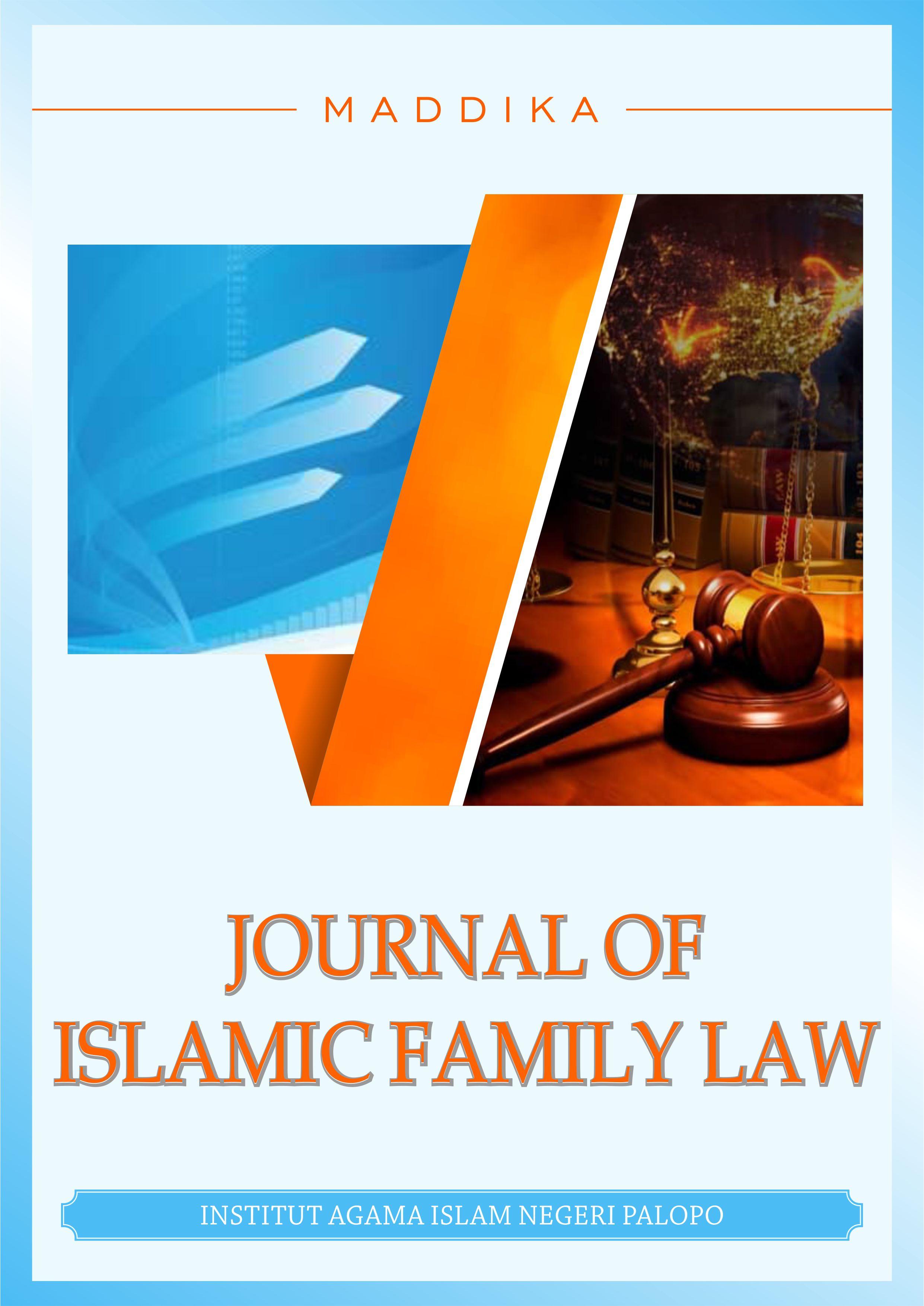STRATIFIKASI SOSIAL DALAM PERNIKAHAN ADAT TORAJA PERSPEKTIF HUKUM ISLAM
DOI:
https://doi.org/10.24256/maddika.v5i1.5014Abstract
This article aims to discuss social stratification in traditional marriage in Toraja from the perspective of Islamic law. This research is qualitative, using a sociological and normative syar'i approach. The data was obtained from interviews with religious leaders, traditional leaders, and community figures who are knowledgeable about Toraja traditional marriage. The data collected was systematically analyzed through data reduction, data presentation, and conclusion drawing. The research findings indicate that social stratification in Toraja traditional marriage in Lembang Rumandan is not based on caste but on the ability of the male party. However, the marriage ceremony is still carried out according to tradition to preserve local wisdom, in line with Islamic law. The tradition of Rampanan Kapa' (Toraja Traditional Marriage) is a local wisdom within the Toraja community regarding marriage. Similar to marriage in Islamic law, Rampanan Kapa' also has processes starting from selecting a partner to the marriage ceremony, which in Islam is referred to as walimah al-'ursy. Islam does not reject local wisdom or customs within the community as long as they do not contradict Islamic principles. In fact, Islam places customs in a high position, where customs can be used as a basis for determining a law. Therefore, the Rampanan Kapa' tradition can be accepted and preserved by the community as long as its practice does not contradict Islamic teachings. The processes in the Toraja traditional marriage or Rampanan Kapa' are contextually in line with the marriage process found in Islamic law.
Keywords: Social stratification, Toraja customs, Islamic law.
Downloads
Published
How to Cite
Issue
Section
Citation Check
License
Copyright (c) 2024 Nurul Wafiq Nurul

This work is licensed under a Creative Commons Attribution-NonCommercial-ShareAlike 4.0 International License.
Authors who publish in this journal agree to the following terms:
- Authors retain copyright and grant the journal right of first publication with the work simultaneously licensed under a Creative Commons Attribution License that allows others to share the work with an acknowledgment of the work's authorship and initial publication in this journal.
- Authors can enter into separate, additional contractual arrangements for the non-exclusive distribution of the journal's published version of the work (e.g., posting it to an institutional repository or publishing it in a book), with an acknowledgment of its initial publication in this journal.
- Authors are permitted and encouraged to post their work online (e.g., in institutional repositories or on their websites) before and during the submission process, as this can result in productive exchanges and earlier and greater citations of published work.




















